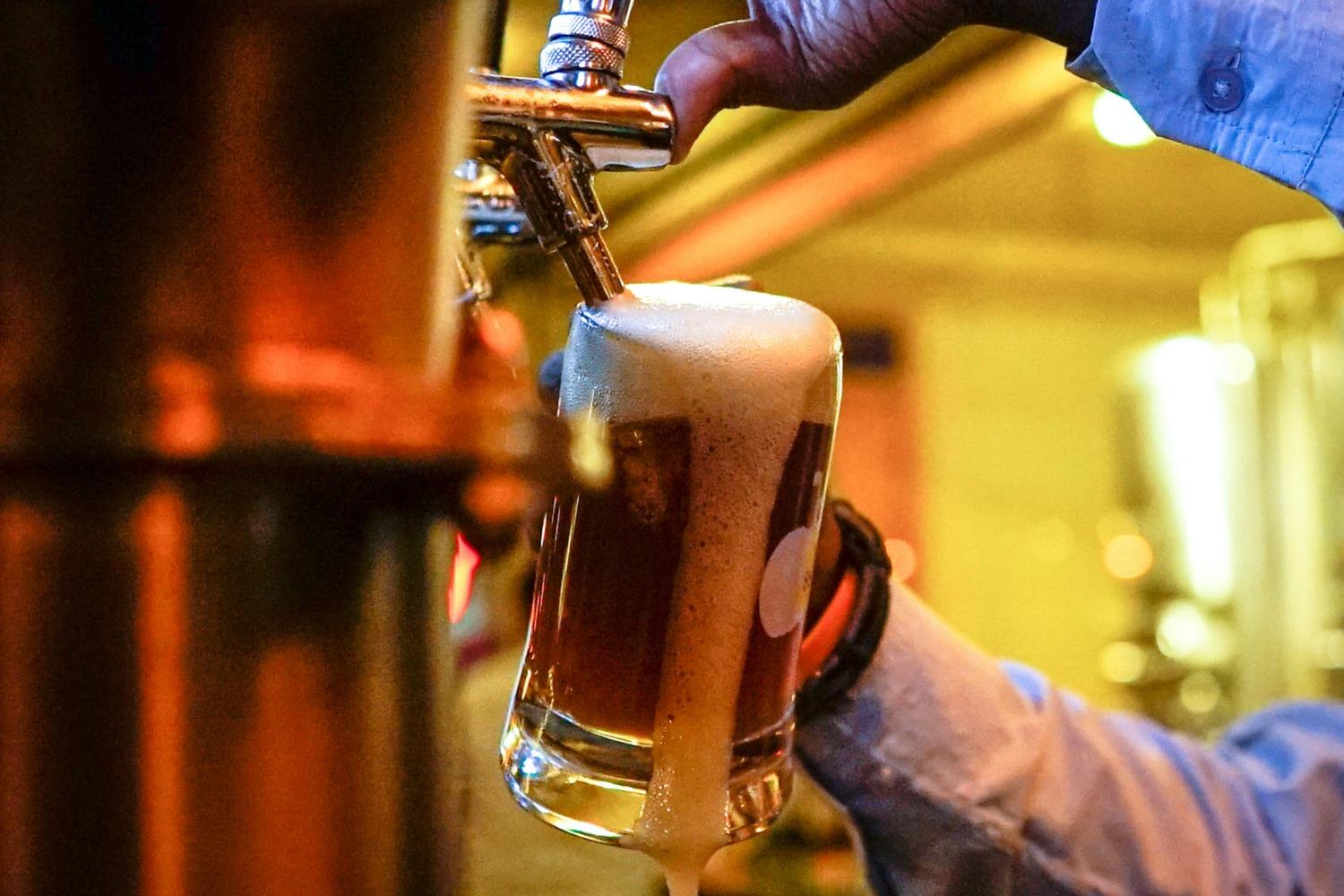
My Dear Boy,
You turn 21 today. I will not embarrass you with memories of the day you were born. I will keep that treasured day with your mother and the Lord.
You are now able to drink legally and I would like to share with you some of my experience. I got this by right actions, wrong actions, conversations, and reading. I want to begin with my favorite passage on wine: “wine gladdens the heart of man” (Psalm 104). In wine and beer we have been given a gift from God.
There is a minority at your college that binge drink (do they call it that anymore?). You know, of course, that that is both dangerous and, ultimately, sinful. But what is the right approach to thinking about drinking?
I’d like to share with you three ways to think about drinking, inspired by that poet-mystic Fr. Paul Murray, OP. The first is as a very earthy gift from God. Scripture, Aquinas, and Tolkien know this well: “bibite amici et inebriamini carissimi – drink, friends, and get drunk my fellows!” (Song of Songs 5:1). Like all scriptural passages, this needs to be read in the light of other passages, especially in the New Testament where we find many condemnations of physical drunkenness. I think that one of the differences between moderate drinking and drunkenness is that the former is an approach to a deeper experience of reality, and the latter is an escape from reality.
Aquinas, as you know from your studies, loved to ponder the concrete, sensuous reality of the world. Here he followed Aristotle. But Thomas was able to view everything as the gift of the creator, including wine and beer. And so he says, “Sober drinking is health for the body and the soul” (ST II-II 149, art. 1, ad 1). His twentieth-century disciple and confrere, Fr. Herbert McCabe, says of good drinking that: “We exercise temperateness in the matter of eating and drinking by taking and enjoying what is sufficient for our health and the entertainment of our friends.” Note that this is not the minimalist, “just a bit” drinking. Drinking can bring joy, and this is a gift from God. St. Catherine of Siena, my favorite doctor of the Church says that drinking “gets rid of all coldness” (Letter 208).
In the end, there is no formula for how to drink. Certainly there are extremes. One can have more than two but ten drinks are too many. Evelyn Waugh’s reflections have helped me (of course the author himself didn’t have the temperance to live up to his words!). You remember Brideshead Revisited. Towards the end of his undergraduate years Charles reflects on how he and Sebastian began drinking together but then grew apart in their drinking:
But let me go a bit deeper. If we view the world sacramentally all good things can teach us about the spiritual life and even about God’s life. I admit that I am not advanced in these experiences, but I trust others who have had them and I try to put myself in a position to experience them by, as Eliot suggests, prayer, observance, discipline, thought and action. But I have tasted these things, and my experience with wine and bourbon have helped me understand that “just as material wine inebriates literally, likewise meditation on wisdom is metaphorically speaking [i.e., in a spiritual sense] an intoxicating drink” (ST II-II 149, art. 1, ad 1). St. Catherine of Siena, that mystic Thomist, says in the same letter of this drunkenness: “the wine which intoxicates the soul so that the more one drinks of it the more one wants to drink.”
Now, let me carry this even further. I want to suggest something, guided by the saints, that I don’t know how to make sense of dogmatically. Not all thought, thank God, is expressed with logical precision! And so I present this to you very tentatively. St. Catherine of Siena (and many Greek mystics) suggest that God can even be “drunk with love for our good.” (Dialogue 17). This must, of course, be understood in an analogical way, just as we understand the similes of God in the Old Testament. But still, isn’t it striking?!
Catherine shares this again in her seventeenth prayer:
Well my boy, I’ve thought about these things for years. All of creation is good, including hours at a pub with friends or wine with your wife at home. In our beautiful Catholic vision all good creaturely things point to God, who is the source and summit of our happiness. This life is, ultimately, a sacrament, a sign of but real participation in the life of the Trinity. A glass of wine or two is a true participation in that grace, but also reveals to us the kind of experiences that can be had in prayer.
Let me conclude with a passage from my second favorite poem, Eliot’s “Four Quartets.” I think that he is talking about the same phenomenon that Aquinas and St. Catherine are getting at.
The point of intersection of the timeless
With time, is an occupation for the saint—
No occupation either, but something given
And taken, in a lifetime's death in love,
Ardour and selflessness and self-surrender.
For most of us, there is only the unattended
Moment, the moment in and out of time,
The distraction fit, lost in a shaft of sunlight,
The wild thyme unseen, or the winter lightning
Or the waterfall, or music heard so deeply
That it is not heard at all, but you are the music
While the music lasts. These are only hints and guesses,
Hints followed by guesses; and the rest
Is prayer, observance, discipline, thought and action.
I enclose some money to take your friends out, although I certainly hope they’ll pay for you this evening.
With love,
Dad


